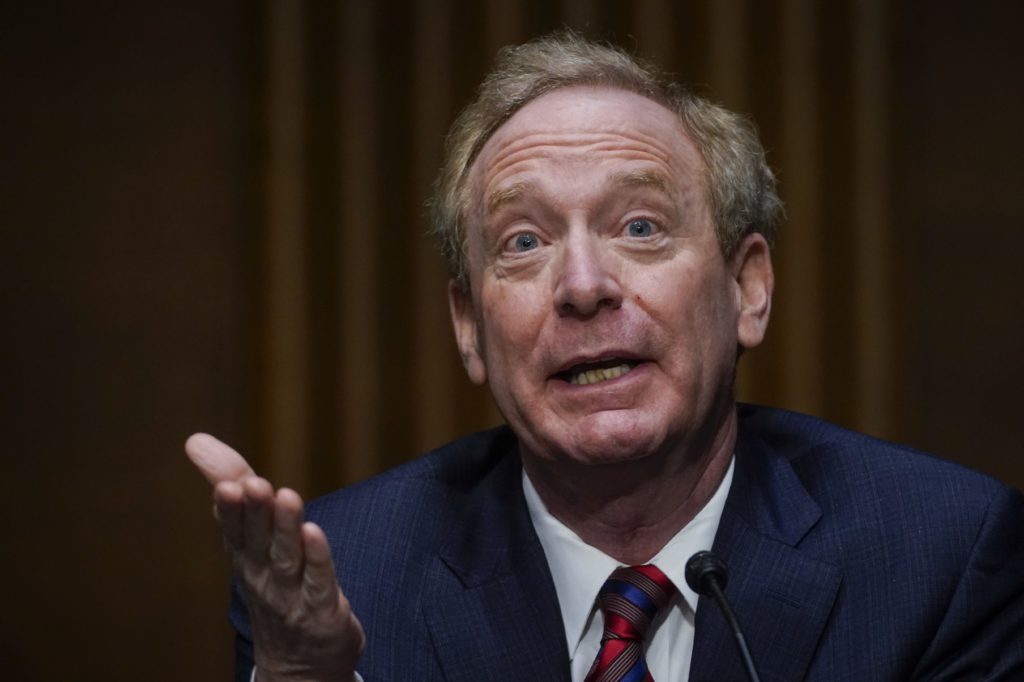(Bloomberg) — Microsoft Corp., the world’s largest software maker, announced its largest ever stock-repurchase program of as much as $60 billion, at a time when U.S. lawmakers are considering a tax on buybacks.
The company’s recent resurgence has given it a market value north of $2.2 trillion, making it the second-most valuable publicly traded company after a 35% rise in its shares over 2021. Its previous buyback plan, unveiled in September 2019, was for $40 billion.
Microsoft’s latest purchase scheme comes after two senior Democratic senators proposed a 2% tax on corporate stock buybacks as part of a bid to help fund a $3.5 trillion U.S. budget bill.
The potential tax, announced on Friday, was released by Senate Finance Committee Chairman Ron Wyden of Oregon and Senate Banking Committee Chairman Sherrod Brown of Ohio, in a bid to boost company investment and reduce tax avoidance.
Although Microsoft did not say in its statement Tuesday how it would fund its buyback, it’s currently sitting on a cash pile of more than $130 billion that it has used to fund acquisitions and to boost dividends and buybacks.
The current buyback has no expiration date, and may be terminated at any time. Microsoft also increased its quarterly dividend by 6 cents to 62 cents a share. Its shares were up 1% as the market opened in New York on Wednesday.
Microsoft also appointed President and Chief Legal Officer Brad Smith as vice chair.
Smith, who joined Microsoft in 1993 and became general counsel in 2002, will continue to report to Chairman and Chief Executive Officer Satya Nadella, the Redmond, Washington-based company said Tuesday in a statement. Smith’s new role makes him vice chair of the company, not the board, and he won’t become a director, Microsoft said.
In recent years, Smith has taken on oversight of an expanding list of policy, government and legal issues at Microsoft, including relations with foreign governments like China, political giving, and programs to expand rural broadband service and access to job skills. He also has been a vocal representative of Microsoft’s views on sustainability, immigration, voting rights, search engine payments for news, and data privacy.
Smith, who spent years working to resolve Microsoft’s antitrust disputes around the world, has so far helped steer the company away from the new wave of regulatory scrutiny that has dogged rivals like Google parent Alphabet Inc. and Amazon.com Inc.
Since Nadella took the helm of Microsoft in 2014, he has revived the company’s leadership in the tech industry by growing in key businesses like cloud computing, mobile applications and artificial intelligence.
(Updates with shares in sixth paragraph.)
More stories like this are available on bloomberg.com
©2021 Bloomberg L.P.











